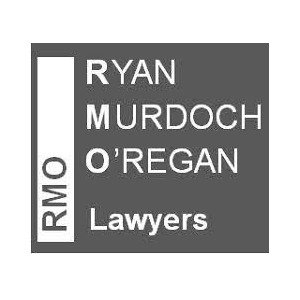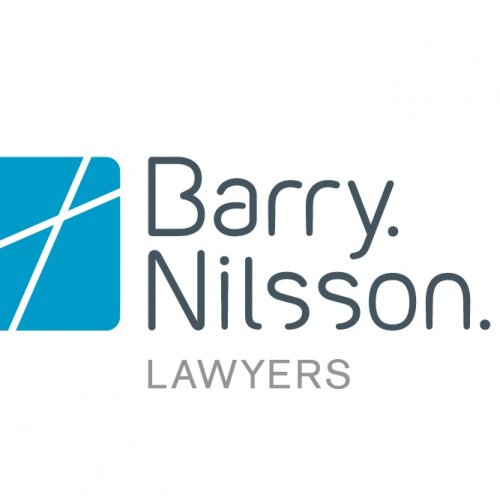Best Trusts Lawyers in Brisbane
Share your needs with us, get contacted by law firms.
Free. Takes 2 min.
List of the best lawyers in Brisbane, Australia
About Trusts Law in Brisbane, Australia
Trusts are a crucial component of estate planning in Brisbane, Australia. A trust allows an individual (the settlor) to transfer ownership and management of assets to a trustee for the benefit of a third party (the beneficiaries). Trusts are governed by Australian common law and specific statutes, such as the Trusts Act 1973 (Qld) and the relevant provisions of the Corporations Act 2001. They provide flexibility in managing and protecting family wealth, ensuring that assets are distributed according to the settlor's wishes.
Why You May Need a Lawyer
Several situations may necessitate seeking legal advice regarding trusts:
- Creation of a Trust: Establishing a trust involves complex legal and tax considerations. A lawyer can ensure compliance with all legal requirements.
- Trust Administration: Ongoing management of a trust can be intricate, necessitating legal assistance to adhere to fiduciary duties and record-keeping obligations.
- Disputes Involving Trusts: Legal disputes may arise over the interpretation, amendment, or termination of a trust, requiring expert legal guidance.
- Tax Implications: Trusts can have significant tax implications, and professional legal advice is crucial to navigate these effectively.
- Asset Protection: A lawyer can advise on using trusts to protect assets from creditors and during matrimonial property settlements.
Local Laws Overview
Trusts in Brisbane are primarily governed by the Trusts Act 1973, which outlines the creation, administration, and termination of trusts. Key points include:
- Duties of Trustees: Trustees are obligated to act in the best interests of the beneficiaries, manage trust assets prudently, and maintain accurate records.
- Types of Trusts: Various types of trusts can be established, such as testamentary trusts, discretionary trusts, and unit trusts, each with its own legal implications.
- Beneficiary Rights: Beneficiaries have rights to information and, in some cases, may seek legal redress if they believe a trustee has breached their duties.
- Regulatory Compliance: Compliance with statutory requirements and taxation laws is crucial to avoid penalties and ensure the trust operates effectively.
Frequently Asked Questions
What is a trust?
A trust is a legal arrangement where a trustee holds and manages assets for the benefit of beneficiaries, as directed by the trust deed.
Who can be a trustee?
A trustee can be any individual or entity capable of owning property, though it's prudent to choose someone with the necessary skills and integrity to manage the trust effectively.
Can I change the terms of a trust?
Altering a trust depends on its type and terms. Discretionary trusts may offer more flexibility, whereas fixed trusts might require legal processes to amend.
What happens if a trustee breaches their duties?
If a trustee breaches their duties, beneficiaries may seek legal action to remove the trustee, demand compensation, or rectify the breach.
Are there tax advantages to establishing a trust?
Trusts can offer tax planning opportunities, but they also carry specific tax obligations. Consulting a lawyer or tax advisor is crucial for navigating these issues.
Can trusts be used for business purposes?
Yes, unit trusts are commonly used to structure business arrangements, providing flexibility and tax efficiencies.
How is a trust different from a will?
While wills distribute assets upon death, trusts can manage and distribute assets during and after the settlor's lifetime, offering more control and privacy.
What records do trustees need to keep?
Trustees must maintain detailed financial records, asset inventories, and records of decisions affecting the trust, to uphold transparency and accountability.
How do I resolve a dispute regarding a trust?
Resolving trust disputes usually involves legal mediation or litigation, and it's advisable to consult a lawyer to explore all available options.
Are trusts recognized internationally?
Trust recognition varies by jurisdiction. Cross-border situations require specialized legal advice to ensure compliance with all relevant laws.
Additional Resources
For further assistance and information on trusts in Brisbane, consider the following resources:
- Queensland Law Society: Offers resources and referrals to qualified legal professionals in trust law.
- Australian Taxation Office (ATO): Provides guidance on the tax implications of trusts.
- Public Trustee of Queensland: Government body offering trust administration services and advice.
Next Steps
If you require legal assistance with trusts, consider the following steps:
- Consult a Lawyer: Seek advice from a lawyer specializing in trust law to understand your legal rights and obligations.
- Prepare Documentation: Gather all relevant documents pertaining to your trust to facilitate an efficient legal consultation.
- Explore Legal Aid: Depending on your circumstances, you may be eligible for legal aid services in Queensland to assist with costs.
Lawzana helps you find the best lawyers and law firms in Brisbane through a curated and pre-screened list of qualified legal professionals. Our platform offers rankings and detailed profiles of attorneys and law firms, allowing you to compare based on practice areas, including Trusts, experience, and client feedback.
Each profile includes a description of the firm's areas of practice, client reviews, team members and partners, year of establishment, spoken languages, office locations, contact information, social media presence, and any published articles or resources. Most firms on our platform speak English and are experienced in both local and international legal matters.
Get a quote from top-rated law firms in Brisbane, Australia — quickly, securely, and without unnecessary hassle.
Disclaimer:
The information provided on this page is for general informational purposes only and does not constitute legal advice. While we strive to ensure the accuracy and relevance of the content, legal information may change over time, and interpretations of the law can vary. You should always consult with a qualified legal professional for advice specific to your situation.
We disclaim all liability for actions taken or not taken based on the content of this page. If you believe any information is incorrect or outdated, please contact us, and we will review and update it where appropriate.















